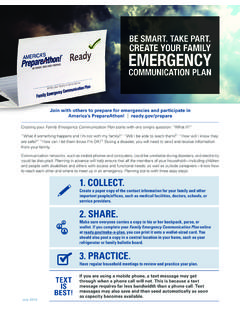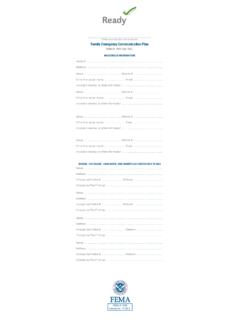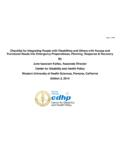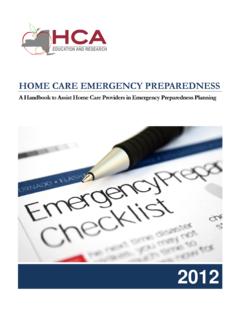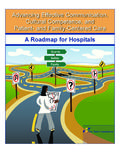Transcription of ECom - Basics
1 emergency communication (ECom) - Basics LatestUpdate:7/7/12. Release: W0 IPL, July 2012. This material may be copied and freely distributed as long as no money is derived from its use. If you make money from any of this, send me half. - W0 IPL. Introduction ECom Release is the next step in the evolution of emergency communication (ECom) material. This update removes the ICS summary because it is and has been available as an online course for several years. It also begins to merge some of the more useful portions of ACS. The first segment is orientation, to supply the student with appropriate background information in such items as: terminology, service, attitude, RACES, Served Agencies, and personal preparation. The second segment includes: safety, Basics of communication , nets, traffic handling, personal equipment, modes of operation, call-out process and debriefing.
2 Table of Contents Orientation Terms and definitions Service, it's what we do Record Keeping Attitude Planning Served Agencies We are not a rapid response team! We do NOT run the event Who talks to the media? Served Agency communication Systems Basic Training and Simulations What you need to do Practical Experience Simulations and how they help Hints to help during an emergency Mutual Aid Personal Preparation Public Service communication Safety - your number one priority Workmen's Comp communication Guidelines Nets Net Participants Guide Roles in a net From first call to back home - What you need to do. Message Handling Getting the message through Personal Equipment Marking Your Equipment Connectors Knowing your Equipment Equipment Maintenance Portable Antennas Generators CW Nets Digital Nets SSB Nets FM Simplex Nets Repeater Nets Operator Skills emergency Call-outs Operator Stress Debriefing Tactical Debriefing Emotional Debriefing What can I do?
3 Family Briefing Incident Command System (ICS) Overview Incident Command Overview WHERE WE FIT, IN ICS! Reference Items DOs and DON'Ts for Public Event communication Orientation Terms and Definitions ECom - emergency communication Supplemental communication provided to our served agencies by ECom operators when served agency communications are over loaded or insufficient to handle the needs of the event or incident. ECom Operators - Amateur Radio operators, trained in emergency communication ( ). Group of Hams that have volunteered to train in communication for use by local Public Service (CSP, OEM, SO, PD, Fire, etc.) during times of emergency . RACES - Radio Amateur Civil emergency Service Licensed Amateurs that have met the qualifications, been approved, and then registered with a Civil Defense organization (now typically called The Office of emergency Management [OEM]).
4 RACES operators are only activated by an OEM type organization and may communicate ONLY with other RACES stations (FCC 06-149 - 10/10/06). Incident Any planned or unplanned occurrence, regardless of cause, which requires action by emergency service personnel to prevent or minimize loss of life or damage to property and/or natural resources, not training. Event Any planned activity that is non emergency in nature where ECom communicators are used to assist charitable organizations or public service groups with communications, or ECom training exercises. This includes such occurrences as the annual and other more specific training. Note: Events run under ICS will often have "incident" names but will be referred to as "events" in this document because they are scheduled. Service, it's what we do ECom is an opportunity to provide the public service community with trained Amateur Radio operators who will have a consistent level of expertise in emergency communication .
5 It is evident that there are areas in the that have few opportunities to train operators in disaster communication , while other areas have far more than any would wish. This program will provide consistency in technical training where ever the person lives. The goal of this document is to provide consistently knowledgeable communication people who have a very positive, service oriented attitude. Unfortunately, there are persons in the Amateur Radio community that believe we are there because we have a "right" to participate. The opposite is actually true. We are welcomed by the public service community only to serve their communication needs. We are there only at their pleasure and to provide a service. In fact, our very existence is only to provide for their needs. We provide the public service community supplemental communication when their systems are overloaded. We: Do not run the event or incident!
6 Keep good records. Practice by helping charitable organizations. The first item you will need to remember in communications for a served agency is do not speculate. Let me repeat, do not speculate on anything relating to an emergency . There may be hundreds of people listening to what you say (amateur operators, Media and Public - via scanners). and any incorrect information could cause panic. If your served agency tells you they want an estimate, you may provide that information, so long at you make it very clear in the message that it is an estimate. For example - "Estimated number of spare shovels at fire base three is twelve.". would be acceptable. Record Keeping Before we go further into the ECom material it is helpful to understand record keeping. While most people find record keeping distasteful it does serve a necessary purpose during events and is essential during incidents.
7 If a served agency person comes over and asks when thus-and-such was handled, how will you answer? When you keep accurate logs of everything your location does the answer is easy. Look in your log and give them the information they requested. But, you say, what if it is not in my log? Easy, call the location that has the correct log and get the required information. The following set of forms are suggestions for a starting point with information collection. If your group has their own forms, use them! These are for areas that have not developed their own and are a starting point only. Each served agency has unique requirements. Build your own forms to handle your served agency(ies) needs. Location Assignments Event Log If your group does not have any predisposition toward one form or another, the preference would be to use ICS forms. The reasoning is simple, if you use ICS forms then any interaction with your served agency is in/on a form that they are familiar with.
8 This saves confusion and expedites communication . If your group uses, or is thinking of using ICS forms you can go to Google on the internet and search for "ICS Forms" (with the quotes) to get links to a large number of sources for the ICS forms you may need. Attitude A person having just completed basic training as a fire fighter is not going to be expected by the public, his peers, or his superiors to be as well suited to all aspects of the job as one who has undergone additional training above the basic level. Field experience added to on-going training are what make a good fire-fighter. Why then is it that many of the Amateur Radio fraternity feel that having an operator's license automatically makes them an asset to public safety communications? Unfortunately, this attitude is held by many amateurs and is an example of something in need of change. A driving license grants one the privilege of driving upon the public streets and highways.
9 It does not entitle the person to drive a heavy truck for hire. It is the requirement of on-going training and experience that produces a qualified operator. Nothing in the course of study from Technician to Extra Class Amateur License, makes anyone an emergency communications expert, or even an asset to the public safety. Unless a person is willing to undertake on-going training and thus gain experience, and to subject himself to accepted standards of conduct and discipline, the license serves only as minim requirement for operation. In matters of emergency communications, this means you are expected to know far more than just how to hook up and use a radio transmitter and antenna. You must also know how to communicate using the minimum number of words, operate in a directed net - without slowing the net yet without being in a hurry, something of how to conduct yourself concerning sensitive communications, dealing with the press, your limitations as well as your assets.
10 If you expect to be dumped into the middle of a forest fire to provide emergency communications to professional and volunteer fire crews, then you need to know at least the Basics of fire fighting, how it relates to your own safety, that of the public at large, and the other members of the team. In short, you may think you are the best communicator in the world, but if you expect to be placed in the thick of it, you might want to know which way the wind is blowing! Before you begin the technical material involved in learning about emergency communication (ECom) it is imperative that you understand your knowledge in ECom is not actually as important as your attitude, during emergencies. Yes, technical ability will enable you to do a far better job of communicating. But your attitude will determine the success of the overall Amateur Radio effort. The person who brings a "know it all" or "Cowboy" attitude will only hamper relations with served agencies.
